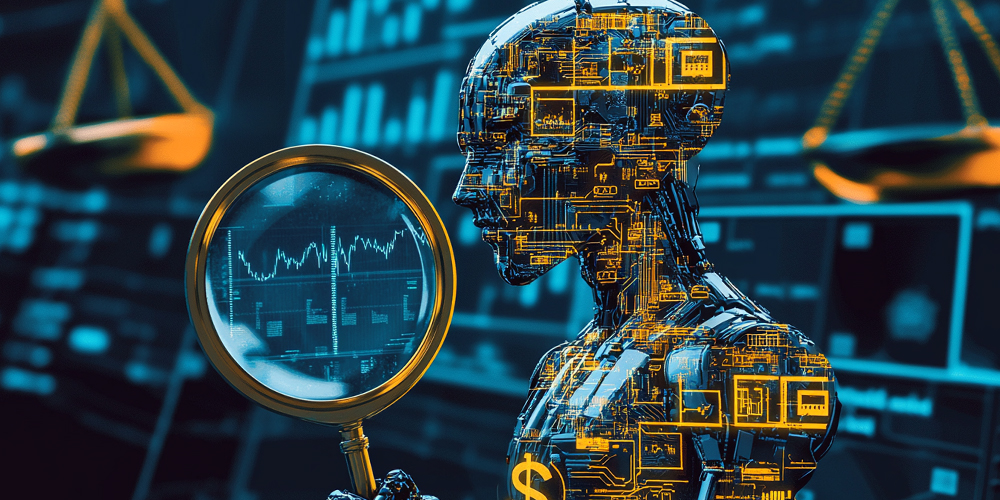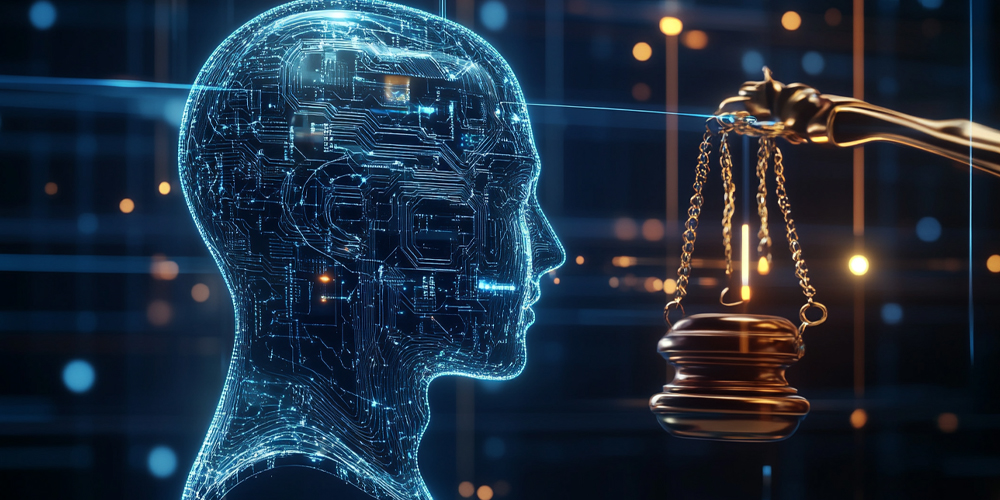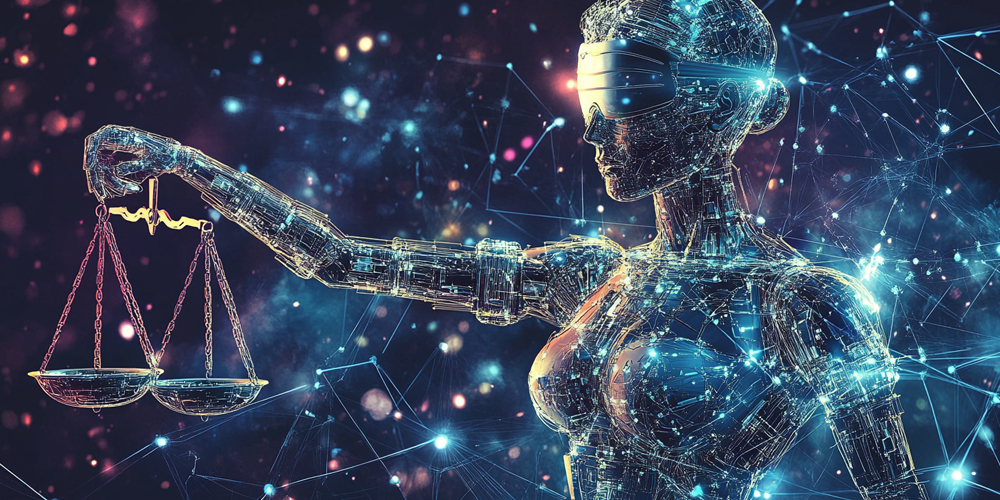In recent years, Artificial Intelligence (AI) has become an integral part of our daily lives. From healthcare to finance, transportation to entertainment, AI is transforming industries and reshaping how we interact with technology. However, with the rapid development and adoption of AI, ethical concerns have surfaced. As AI continues to evolve, it raises fundamental questions about fairness, accountability, transparency, and privacy. This article explores the key principles of AI ethics, the challenges associated with it, and the importance of creating ethical AI systems.
What is AI Ethics?
AI ethics refers to the moral implications of creating and using artificial intelligence technologies. It involves evaluating the potential risks and benefits of AI systems, ensuring that they are developed and used in ways that align with ethical principles and societal values. As AI systems become more powerful, it is essential to consider their impact on individuals, communities, and society as a whole.
Ethics in AI includes considerations such as:
- Ensuring fairness and preventing bias
- Promoting transparency and accountability
- Protecting user privacy
- Ensuring that AI is used for the benefit of society
The goal of AI ethics is to ensure that AI technologies are developed and deployed responsibly and that their impact on people is positive and equitable.

Key Principles of AI Ethics
To guide the ethical development and use of AI, several core principles have been identified by experts, governments, and organizations. These principles provide a foundation for addressing the ethical challenges of AI.
1. Fairness
One of the most important ethical principles of AI is fairness. AI systems must be designed to treat all individuals equally, without bias or discrimination. This is particularly crucial in areas like hiring, law enforcement, and lending, where biased AI systems can perpetuate social inequalities.
Bias in AI can arise from several sources, such as biased data sets, algorithmic decisions, or human biases embedded in the design process. If not carefully managed, AI systems can inadvertently reinforce societal stereotypes or discriminate against certain groups based on race, gender, or socioeconomic status.
To ensure fairness, AI developers must:
- Use diverse and representative data to train AI models.
- Regularly audit AI systems to identify and mitigate bias.
- Promote transparency in AI decision-making processes.
2. Accountability
As AI systems become more autonomous, accountability becomes a significant ethical concern. Who is responsible when an AI system causes harm or makes a mistake? Accountability ensures that AI systems are not used in ways that can harm individuals or society, and that those responsible for developing or deploying AI systems are held liable for their actions.
In the case of autonomous vehicles, for example, if an accident occurs, it is important to determine who is responsible—the AI system, the developers, or the manufacturer of the vehicle. Accountability also applies to data breaches, biased decisions, and other potential harms caused by AI systems.
To foster accountability, AI developers and organizations should:
- Clearly define the roles and responsibilities of individuals involved in the development and deployment of AI systems.
- Implement mechanisms to track and audit AI decision-making processes.
- Ensure that legal and regulatory frameworks hold developers and organizations accountable for the ethical use of AI.
3. Transparency
Transparency is another key principle in AI ethics. It involves making the processes behind AI systems visible and understandable to all stakeholders, including developers, users, and the general public. AI systems can be complex, and their decision-making processes are often difficult for non-experts to comprehend. Lack of transparency can lead to mistrust, misinterpretation, and unethical use of AI.
For example, when an AI system is used to make decisions about creditworthiness or healthcare treatment, it is crucial that users understand how those decisions are made. Without transparency, individuals may be unfairly denied access to services or opportunities.
To promote transparency, AI developers should:
- Ensure that AI models and algorithms are explainable and interpretable.
- Provide clear documentation and explanations of how AI systems work.
- Educate the public about the potential risks and benefits of AI technologies.
4. Privacy Protection
As AI systems gather and analyze vast amounts of data, privacy concerns become increasingly important. AI systems can track personal information, monitor behaviors, and predict actions, raising the risk of privacy violations. It is crucial to protect individuals’ privacy rights while ensuring that AI systems can still operate effectively.
AI systems must comply with data protection laws, such as the General Data Protection Regulation (GDPR) in the European Union, which gives individuals control over their personal data. Additionally, AI developers must adopt best practices for data security to prevent breaches and unauthorized access to sensitive information.
To protect privacy, AI developers should:
- Implement strong data encryption and security measures.
- Anonymize personal data wherever possible.
- Obtain informed consent from users before collecting or using their data.
Challenges in AI Ethics
While the principles of AI ethics are clear, there are several challenges in ensuring that AI systems adhere to these principles. Some of the key challenges include:

1. Bias and Discrimination
One of the most significant challenges in AI ethics is addressing bias in AI systems. AI systems learn from data, and if that data reflects historical inequalities or biases, the AI system may perpetuate or even amplify those biases. This can lead to unfair outcomes, such as discriminatory hiring practices, biased criminal justice decisions, and unequal access to services.
For example, facial recognition technology has been shown to exhibit racial and gender biases, leading to inaccuracies in identifying people from certain demographic groups. Addressing bias in AI requires careful attention to data quality, algorithm design, and continuous testing.
2. Lack of Regulation
The rapid development of AI technologies has outpaced the creation of regulations to govern their use. While some countries have implemented AI regulations, there is still a lack of international consensus on how to regulate AI effectively. Without clear and enforceable regulations, AI systems can be used in harmful or unethical ways, and there is little recourse for individuals affected by these systems.
Governments, international organizations, and private companies must work together to create a regulatory framework that ensures the ethical development and deployment of AI technologies.
3. AI in Decision-Making
AI systems are increasingly being used to make important decisions in areas such as healthcare, criminal justice, and finance. While AI can process large amounts of data and identify patterns that humans might miss, there are concerns about the potential for AI systems to make flawed or unjust decisions.
For example, AI-driven risk assessment tools used in the criminal justice system have been criticized for perpetuating racial biases. Similarly, AI algorithms used in hiring decisions may favor certain candidates over others based on biased criteria.
To mitigate these risks, AI systems must be regularly audited and tested for fairness, transparency, and accountability. Moreover, human oversight should be maintained to ensure that AI decisions are aligned with ethical principles.
4. Security Risks
As AI systems become more integrated into critical infrastructure, the potential for malicious use increases. AI systems could be hacked, manipulated, or used for harmful purposes, such as cyberattacks, surveillance, or social manipulation. Ensuring the security of AI systems is essential to prevent misuse and protect public safety.
AI developers must implement robust security measures to safeguard AI systems against cyber threats and ensure that AI technologies are used for positive purposes.
Conclusion
AI ethics is a crucial field that addresses the moral implications of artificial intelligence and seeks to ensure that AI systems are developed and used responsibly. By adhering to key principles such as fairness, accountability, transparency, and privacy protection, we can build AI systems that benefit society while minimizing risks.
However, significant challenges remain, such as addressing bias, creating effective regulations, and ensuring the security of AI systems. As AI continues to evolve, it is essential that developers, policymakers, and society work together to ensure that AI technologies are used in ways that align with ethical principles and promote the common good.
The future of AI holds great promise, but it is our collective responsibility to shape it in a way that is fair, transparent, and beneficial to all.




